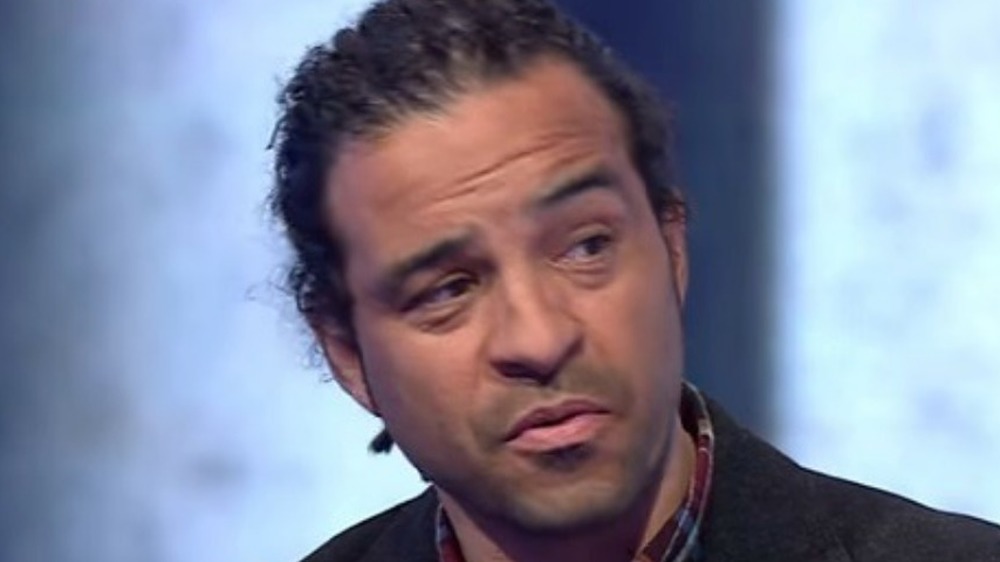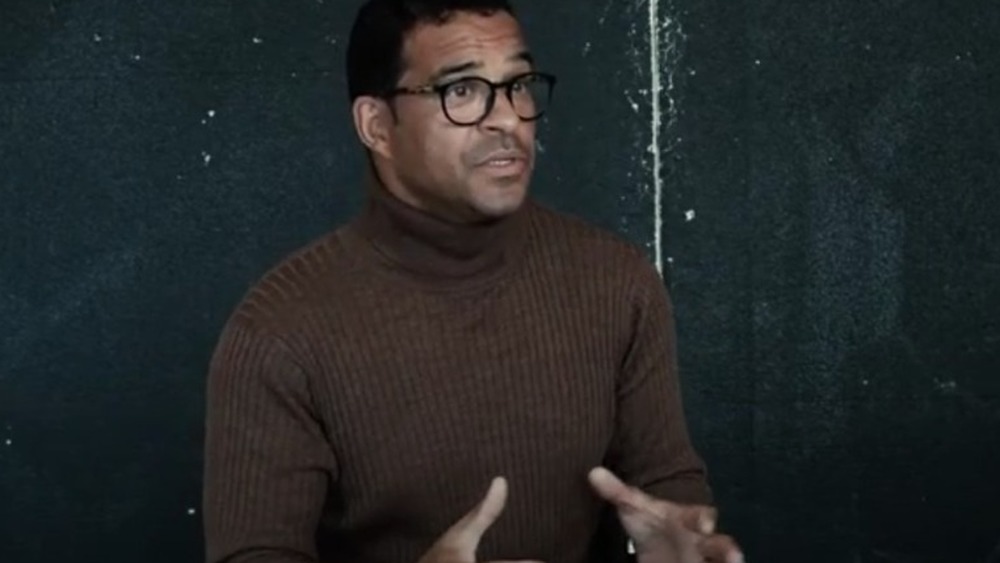The Truth About Inside The World's Toughest Prisons Host Raphael Rowe
Raphael Rowe is not just the host of Netflix's Inside The World's Toughest Prisons; he is a former prisoner himself. Per the BBC, in 1989, at the age of 19, Rowe was sentenced to life imprisonment for a robbery and murder he didn't commit. During his time in prison, he educated himself on the British criminal justice system and studied journalism via a correspondence course. In 2000, the Court of Appeal, which is the second highest court within England's legal system (second only to the Supreme Court of the United Kingdom), released Rowe and the other two men who had been convicted of the crimes.
According to an interview with Rowe that ran in The Guardian in 2000, however, the court did so begrudgingly, because of a technicality. The presiding Lord Justice announced at the end of his ruling: "This is not a finding of innocence, far from it." Rowe went on to tell The Guardian that he would "keep protesting his innocence and will seek compensation for the lost years" and noted, "I'm still working off my anger about what's happened, but it's the final chapter. When this is over, I don't know what I am going to do with my life."
One of the things he went on to do was change British broadcast journalism. Per Express, in 2001 Rowe started working as in investigative reporter for the BBC program Today. He was the first multiracial person to do so, and went on to report for the channel's Six O'Clock News as well as Panorama.
From falsely accused criminal to crime reporter
On his own website, Rowe points out that in bringing "dreadlocks and mixed race, with a long stretch of my life lost to incarceration and fighting to prove my innocence" to the BBC, he was breaking stereotypes surrounding who gets to work for the news agency — the oldest, largest, and, according to MediaNewsline, most trusted media source in the world. Rowe credits his success to his very differences, noting that the skills he picked up from his years fighting against his wrongful conviction "taught me of patience and perseverance to become a recognized household name." As a broadcast journalist, he has specialized in crime-related documentaries, and his investigation for Panorama into Barry George's conviction for the murder of journalist and television presenter Jill Dando shed light on faulty forensic evidence that had been used to convict George, as reported by the BBC. This lead to George's eventual exoneration via appeal.
In addition to his journalism work, Rowe reports on his website that he has also studied for a degree in criminology and highlights the importance of changing the conversations surrounding crime and the criminal justice system. According to Rowe, "A more transparent discussion about what works, and what does not, is needed in order to reduce both the causes of crime and understand the effect criminality can have upon both the victims of crime and society as a whole."

